Excellencies, ladies and gentlemen,
It is a great honour to welcome you all to this Conversation on DPRK human rights.
Our panelists today Mr. Joseph Kim, Ms. Jay Jo and Ms. Kim Hye-sook will be sharing their testimonies regarding their experiences living in the DPRK. I would like to warmly welcome them and thank them for bringing their stories to the United Nations.
Last December, I had the privilege of briefing the Security Council on the situation of human rights in DPRK on behalf of the High Commissioner. This was the first time that this challenging situation had been brought to the Council’s agenda. It represented a milestone in the years of tireless advocacy from victims groups, civil society and others to bring improvements and ask for accountability for those responsible for the gravest violations.
In that briefing I highlighted the plight of the brave individuals who have suffered immensely and have told the world of their experiences and the terrible crimes that they have endured in the DPRK. Their testimony was the foundation of the work of the Human Rights Council’s commission of inquiry that took place last year. The commission stated that the DPRK is a state that does not have any parallel in the contemporary world, one that is characterized by the denial of the rights to freedom of thought, conscience and religion, as well as the rights to freedom of opinion, expression, information and association. It warned that these human rights violations were committed in a widespread, systematic manner, as deliberate policy directed by the highest levels of the government. In many instances, the Commission of Inquiry concluded, these violations constituted crimes against humanity.
What is now needed, is continued focus by the international community on the plight of the millions of people in the DPRK who remain subjected to mass human rights violations. To this end, in June this year, the Human Rights Office, will establish an office in Seoul, which will be dedicated to following up on the ground breaking work of the commission of inquiry, increasing support for the United Nations Special Rapporteur on the situation of human rights in the DPRK and serve as a centre for documentation, technical assistance and advocacy in order to promote accountability with a view to improving human rights in the DPRK.
It is my sincere hope that the international community will continue to examine ways to prevent and punish the crimes that are being perpetrated in the DPRK today. On 18 November 2014, the General Assembly adopted resolution 69/188 on the situation of human rights in the DPRK. The resolution decided to submit the report of the commission of inquiry to the Security Council, and encouraged it to consider referral of the situation in the DPRK to the International Criminal Court. Subsequently, following a vote in the Security Council, the situation in the DPRK has now become an agenda item for ongoing discussion at the Security Council.
Over the past year, we have seen new signs of engagement by the DPRK, for instance in March this year, for the very first time the DPRK Foreign Minister attended the Human Rights Council in Geneva to defend his country’s record. The DPRK also participated constructively in two rounds of the Universal Periodic Review process. We must nurture and build upon these tentative signs of engagement.
The tireless efforts of the international community, civil society and the victims from whom we will hear from today, is working. It is working towards bringing the DPRK to the realisation that violations will not go unseen and unpunished. And above all, that with the right re-orientation of policy and engagement with the international community, there can be meaningful improvements. Now in 2015, we must seize this historic opportunity to bring to an end this suffering and secure real improvements in the human rights situation in the DPRK.
Thank you.
